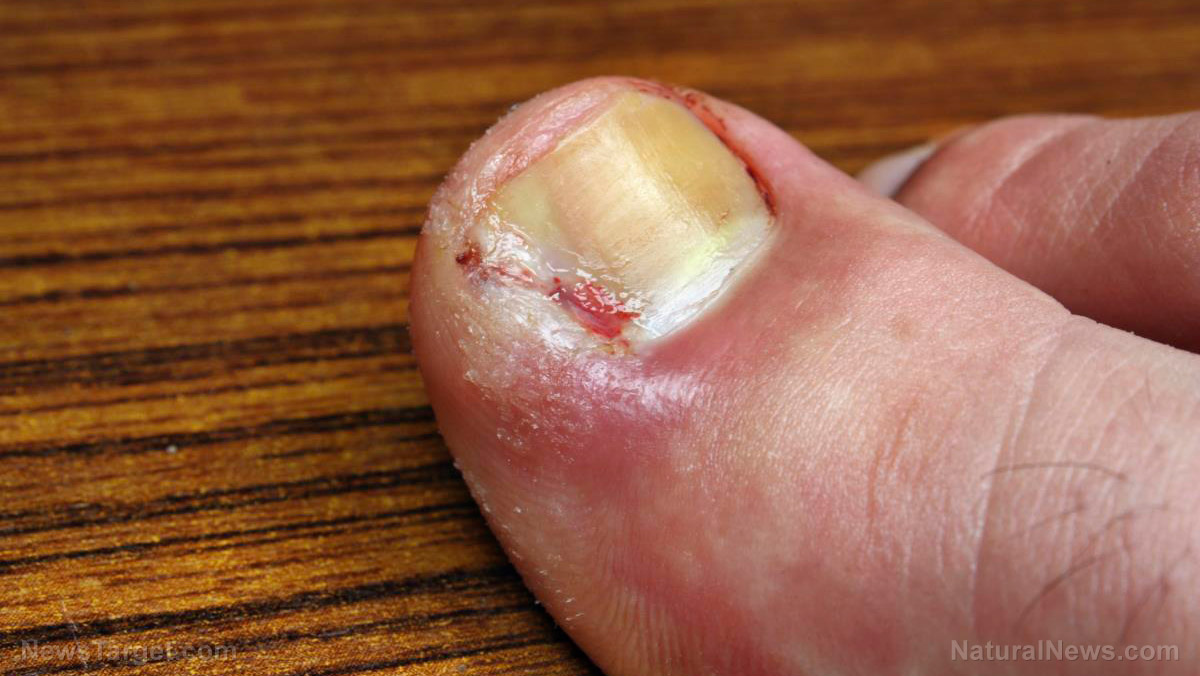Personalized vitamin D supplementation halves risk of second heart attack, study finds
11/17/2025 / By Ava Grace

- A new study (TARGET-D trial) found that a personalized, high-dose vitamin D3 regimen can reduce the risk of a repeat heart attack by about 50% in survivors.
- The key to success was a “target to treat” approach, where doses were customized to raise blood levels of vitamin D above 40 ng/mL, rather than giving a standard, low dose to everyone.
- This method explains why past studies failed, as they used fixed, often insufficient doses without verifying if they achieved therapeutic blood levels.
- The research highlights vitamin D’s role beyond bone health, showing it helps regulate inflammation and blood vessel function, which are critical for cardiovascular health.
- The study challenges conventional cardiology by suggesting that routine testing and optimization of vitamin D levels should become a standard, proactive part of post-heart attack care.
In a healthcare landscape dominated by high-cost pharmaceuticals and complex procedures, a groundbreaking new study suggests a startlingly simple and accessible solution for preventing recurrent heart attacks: personalized vitamin D supplementation. Presented at the 2025 American Heart Association Scientific Sessions in New Orleans, research from Intermountain Health reveals that a “target to treat” approach with vitamin D3 can reduce the risk of a subsequent heart attack by approximately 50%. This finding challenges the one-size-fits-all paradigm of conventional medicine and empowers individuals with a low-cost, natural strategy to take decisive control of their cardiovascular destiny.
A personalized path to prevention
The study, known as the TARGET-D trial, followed 630 heart attack survivors. Researchers moved beyond the standard practice of administering fixed, low doses of supplements. Instead, they meticulously monitored participants’ blood levels of vitamin D, aiming to elevate them above 40 nanograms per milliliter (ng/mL), a level considered optimal by the research team. This personalized protocol stands in stark contrast to previous, unsuccessful trials that provided uniform doses without verification.
The methodology uncovered a critical flaw in standard nutritional guidance. To achieve the target blood level, more than half of the participants required a daily dose of 5,000 International Units (IU) of vitamin D3. This is dramatically higher than the standard recommended daily allowance of 600-800 IU for most adults. The study demonstrates that generic advice is often insufficient, and achieving therapeutic benefits requires a tailored approach based on individual blood chemistry, not population-wide averages.
This research provides a compelling explanation for why earlier clinical trials on vitamin D and heart health yielded disappointing results. Principal investigator Heidi May, Ph.D., a cardiovascular epidemiologist at Intermountain Health, noted that past studies simply gave fixed doses without checking if those doses were actually raising blood levels to a beneficial range. The TARGET-D trial proves that it is the achieved blood concentration of the vitamin, not the act of supplementation itself, that drives the protective effect.
Beyond bones: Vitamin D’s cardiovascular role
Vitamin D is famously crucial for bone health, but its influence extends far beyond the skeleton. The vitamin functions more like a hormone within the body, regulating processes directly tied to heart health. It helps control inflammation, a key driver of arterial plaque formation. It also supports the function of the endothelium, the delicate lining of blood vessels, and plays a role in modulating blood pressure. By addressing these foundational issues, vitamin D supplementation targets the root causes of cardiovascular disease.
Heart disease has remained the leading cause of death in the United States for decades, with nearly 800,000 people suffering a heart attack each year. Of these, about 200,000 are repeat events. For years, the medical establishment’s focus has been overwhelmingly on pharmaceutical interventions like statins and blood thinners, often overlooking the profound role of fundamental nutritional status in disease prevention. This study forces a re-evaluation of that approach.
A safe and monitored strategy
A significant finding of the study was the safety of this targeted, high-dose regimen. Under medical supervision, with regular blood tests to prevent excessively high levels, researchers observed no adverse outcomes from the supplementation. This safety profile makes it a compelling adjunct to standard care, offering significant benefit with minimal risk when properly managed.
The researchers are quick to note the study’s limitations. It was a single-center trial with a predominantly white participant group, which means the results need to be confirmed in a larger, more diverse population. Furthermore, the targeted vitamin D approach did not significantly reduce the overall risk of a combined outcome that included stroke, heart failure hospitalization or death. Its powerful effect was specifically on preventing a second heart attack.
The problem of widespread deficiency
The study underscores a silent public health crisis: vitamin D deficiency. A staggering 85% of the heart attack patients enrolled in the trial had insufficient vitamin D levels at the outset. This reflects a broader global trend, where modern, indoor lifestyles and sun-avoidance recommendations have created a widespread nutrient gap with potentially severe consequences for long-term health.
These findings represent a direct challenge to the status quo in cardiology. They suggest that routine testing and optimization of vitamin D levels should become a standard part of post-heart attack care. It calls for a shift from reactive disease management to proactive, personalized nutritional optimization as a core strategy for prevention.
Taking charge of your health
For heart attack survivors and those concerned with cardiovascular health, this study highlights the critical importance of knowing your vitamin D status.
“The danger of a second heart attack is that it carries a significantly higher risk of death than the first one,” said BrightU.AI‘s Enoch. “Furthermore, the damage from a second event can lead to severe complications like heart failure and dangerous arrhythmias. Preventing a second heart attack is critical, as underlying risks, such as smoking, remain a substantial threat.”
The TARGET-D trial delivers a powerful message: The key to preventing a repeat heart attack may not always lie in a new, expensive drug, but in intelligently replenishing a vital nutrient that modern life has depleted.
Studies show vitamin D can help reverse diabetes and heart disease. Watch this video.
This video is from the Natural News channel on Brighteon.com.
Sources include:
Submit a correction >>
Tagged Under:
alternative medicine, health science, heart attack, heart disease, heart health, natural cures, natural health, natural medicine, Naturopathy, nutrients, prevention, real investigations, remedies, research, supplements, vitamin D
This article may contain statements that reflect the opinion of the author
RECENT NEWS & ARTICLES
COPYRIGHT © 2017 NATURAL MEDICINE NEWS


















